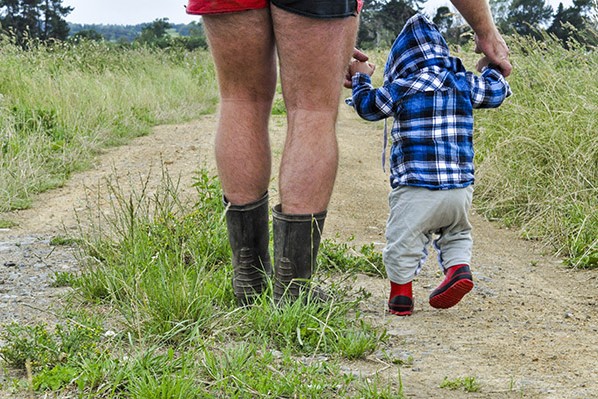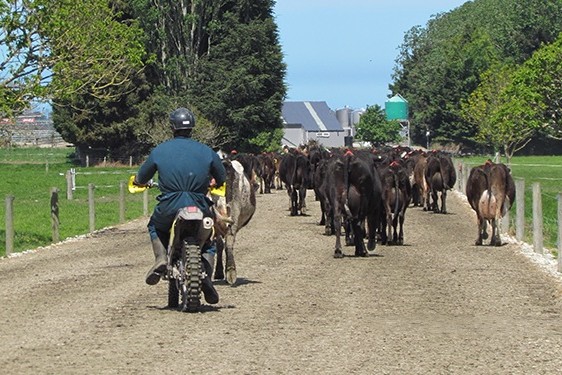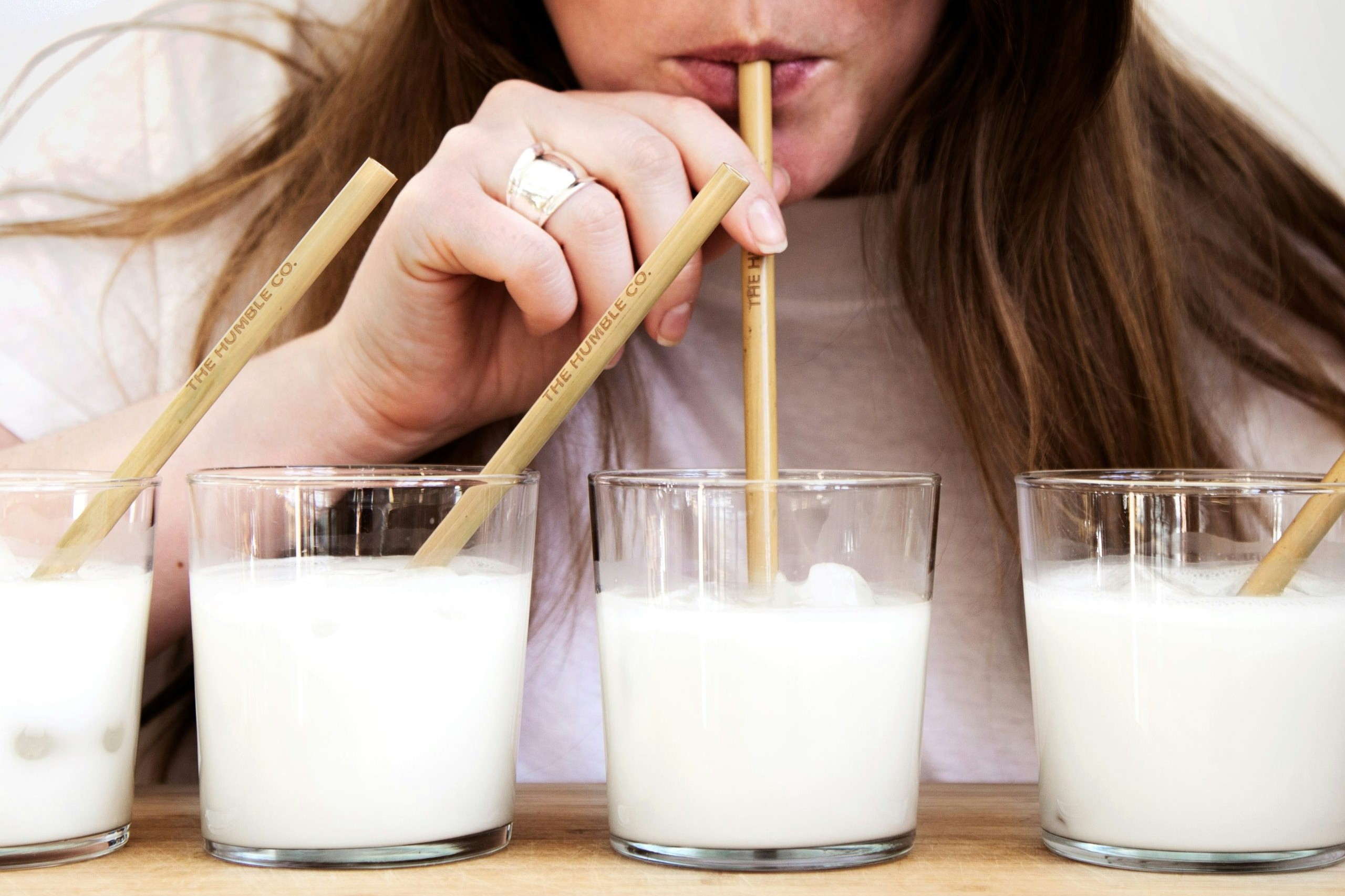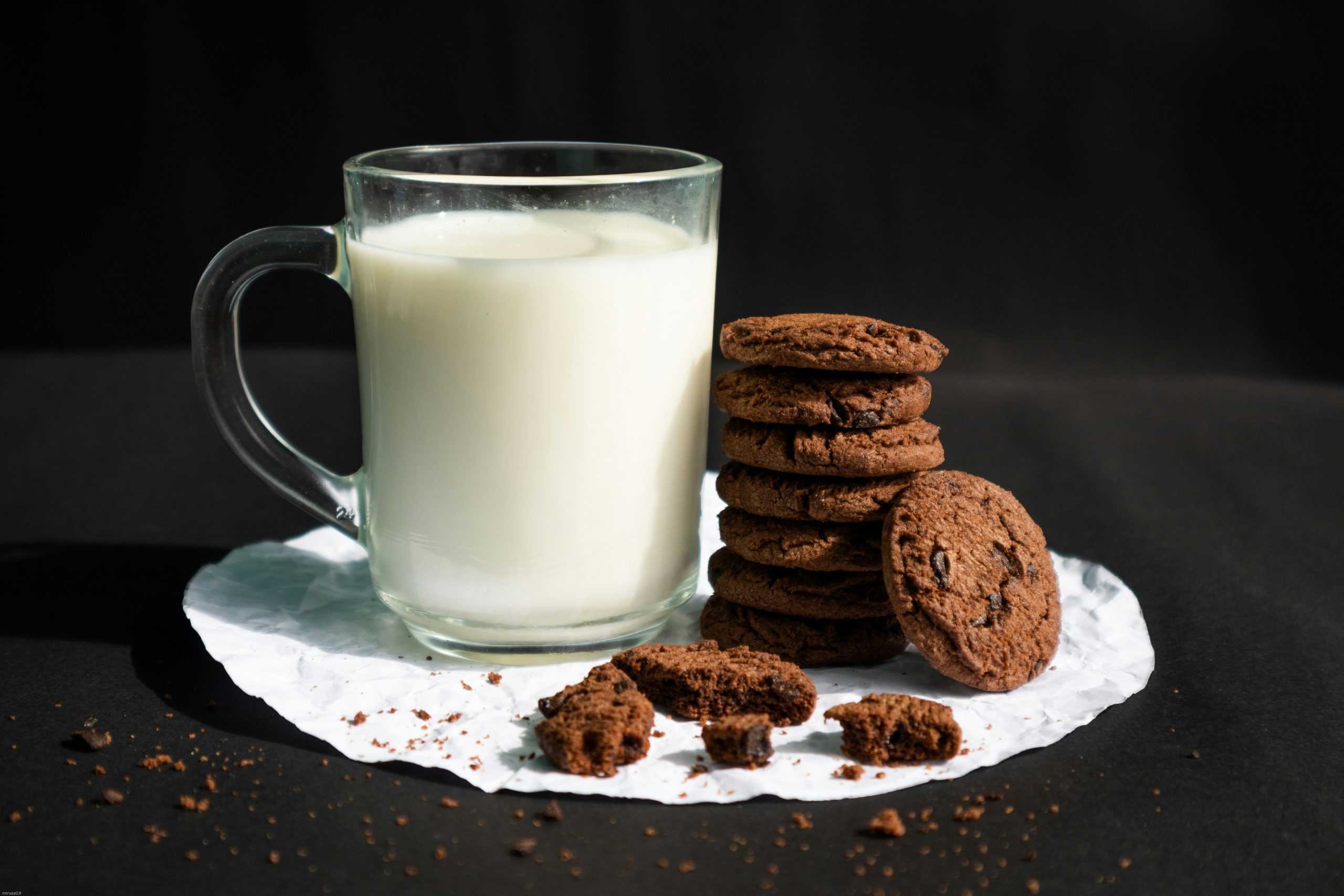Women in dairy: Stepping up
Southland dairy farmer Suzanne Hanning carefully, in her own words, “pokes bears”. By Karen Trebilcock.
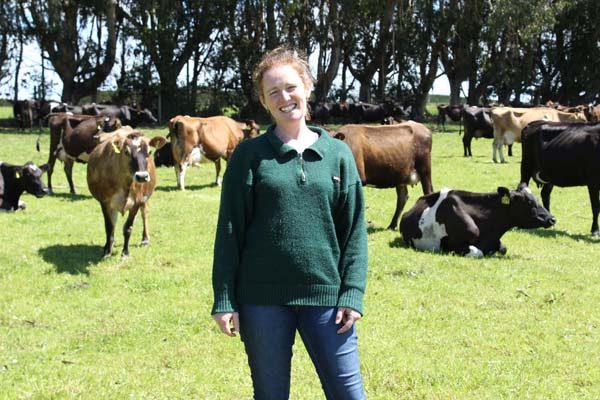
Suzanne’s farm’s Facebook page Bristol Grove Dairies Ltd has almost 2000 followers but gets thousands of views and she tries to post at least weekly what is happening onfarm.
In mid-November it was weaning calves and the arrival of the Hereford bulls on the Grove Bush farm.
“I use Facebook to tell our side of the story, to try to explain what we do and the why we do it. I have heard some people are using the posts as a teaching resource which is so awesome. It makes me really happy to think someone is getting something out of it.
“We had the hoof trimmer arrive the other week and I videoed what he did and it got lots of views and a few comments.
“There had been some stories in the media about farmers with lame cows so I thought it would be a good opportunity to show what we do to try to stop it happening.”
Calves and their antics are the stars of many of the photos and videos but also the cows, the two full-time farm staff, the assistant calf-rearer, Suzanne’s husband Maurice and anyone or anything that shows to the rest of the world what happens on a Southland dairy farm.
It takes her at the most 15 minutes a week but she says the results were timeless.
“I try to look at farming critically, as someone from the outside looking in would and I want people to ask questions. If we can get a conversation going or if someone wants something explained, that’s a success because we have engaged with the wider community.
‘If that cow is converting feed efficiently then not only is it making us money but it’s better for the environment, for the water, for the soil, it’s putting out less nitrogen in the urine and less methane.’
“Too much of the time as farmers we’re being negative on social media, saying it is not us, you’re always picking on us but if people are ill-informed whose fault is that?
“It’s ours for not stepping up and explaining the issues in a respectful way. People who aren’t involved in agriculture aren’t dumb. They just don’t understand because no one has taken the time to tell them.”
She says farmers still need to lift their game when it comes to environmental practices and animal welfare but it is important to show they are trying.
“Society’s expectations are changing so quickly and it’s hard to keep up. We don’t know the solutions, but we’re doing what we think is right with the knowledge we have now but sometimes it’s not right and we have to accept that. We need to be patient with each other.
“And we have got to stop being defensive about it.”
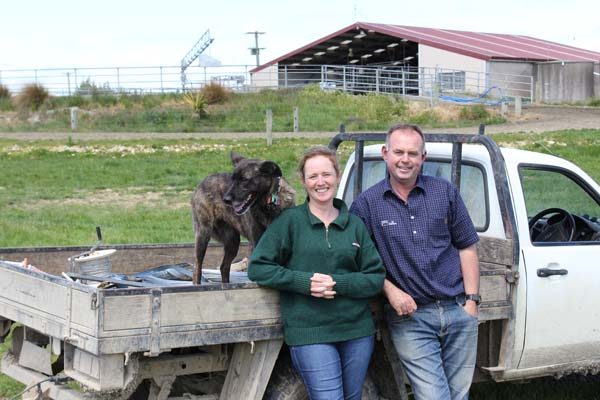
Suzanne is unashamedly passionate about farming and is hands-on, doing what needs to be done whether it is raising the calves, spraying the lanes for weeds, getting cows in or milking.
She blames her father for her work habits.
“My dad worked so hard to get where he did. He emigrated to Canada from Belgium in the 1960s and all he has done is work.
“He and Mum started with nothing. They built up a family farm, got all five children to tertiary education and have just celebrated their 50th wedding anniversary. They have been so successful, but there was very little work/life balance.”
Growing up in Ontario, her dad had a pedigree Friesian herd and milked three times a day, 365 days a year so when her father-in-law Pat suggested the Southland family farm be converted to dairying Suzanne knew more than any of them what they were getting into.
“I said it’s fine with me as long as I’m not going to be milking the cows. But of course I couldn’t help myself.”
The Hannings have been on the farm for five generations – even the road is named after them.
Suzanne met Maurice in a Southland pub on her OE in the 1990s after finishing a vet technician course in Ontario. She had been to Belgium with her parents so wanted to go somewhere different. The choice was South Africa, Australia or New Zealand.
“I was less likely to get eaten in New Zealand so I came here.”
After they were married they both worked multiple jobs off farm so they could continue “supporting their farming habit” of running 3000 ewes on the family farm.
Maurice worked nights at the meat works and Suzanne started off working as a wool handler, then was a soil tester for Ballance Agri-Nutrients and an AI technician, and later on, a sales rep for LIC.
They also started a cow scanning business pregnancy testing cows.
That all came to an end when they went dairying.
“People talk about conversions as being stressful but really, it was a lot of fun. We did 18 months’ preparation doing budget after budget down to the very last cent.
“And because of all our off-farm jobs we had access to some really clever people. We said to ourselves, who has the best lanes in Southland and we went and saw them and how they did it, and who has the best cows and who has the best dairy.
“We were very fortunate and are very grateful and this farm is a testament to all those people who helped us and gave us advice.”
Maurice was in charge of lanes and grass and Suzanne “got to go shopping” for cows, travelling the South Island looking at herds.
And in spring 2007 they started milking – the conversion completed on time and under budget.
They now have a 650-cow herd, although it started as a mix of Friesian, crossbred and Jersey. It is now mostly crossbred with a strict three strikes and you’re out culling policy.
“That’s any medical intervention – mastitis, lameness, whatever. We call it the law of the jungle. Hypothetically, if the cow wouldn’t survive in the wild then it’s gone.”
They’ve kept the stocking rate low, at 2.8 cows/ha, to protect the farm’s light soils and the herd is in the top 5% in the country for BW and PW.
“We want a kilogramme of MS per kilogramme of bodyweight. We want an efficient cow.
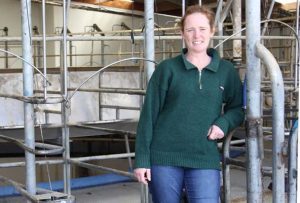
“If that cow is converting feed efficiently then not only is it making us money but it’s better for the environment, for the water, for the soil, it’s putting out less nitrogen in the urine and less methane.
“If you think about the nitrogen we are putting on our paddocks. If it ends up in the waterways, that’s not where we want nitrogen. That is a loss for us.
“We want it in the soil growing grass so keeping it out of the water is important for us financially as well as what is best for the country.”
Her interest in the environment has seen her help form the Hedgehope-Dunsdale Catchment Group with another local farmer Jeanette Topham in 2015. The group includes all the farming types in the area and is working on identifying water quality and sharing good management practices.
“First we had to understand what is good water quality and we’ve liaised with the regional council and we’re starting to get some really good data.”
As well as her Facebook posts, Suzanne and Maurice welcomed a class from a low-decile Invercargill school onfarm last year when the teacher asked for help explaining to the pupils why maths was important.
Suzanne had her three pet cows on the rotary with test buckets and the kids, in three teams, had to guess how much milk each cow would give and then, when milking was finished, they had to measure the milk.
“They were getting their hands in it and tasting it. It was great. Then we looked at how much grass a cow has to eat to produce that milk and got them to fill drums, pretend cows, with grass from a mown paddock and figure out the drymatter content, again in the teams. You could really see them starting to understand it.
“The teacher told us the next day one of the kids worked out the drymatter of his Weetbix at breakfast the next morning so that was pretty exciting that they had taken it on board.
“Farmers are one of the most underrated groups in society but we have such a wealth of untapped knowledge. I just wish we were brave enough to share it more.”
Suzanne and Maurice’s three children Nicole, who has just finished her second year of a BComAg at Lincoln University, Rebecca (15) and Naomi (12) also enjoy the farming life but Suzanne wants them to “experience other stuff” before deciding whether they will take the family farm on and make it generation number six.
“Farming is something you have to be sure you want to do. If our girls want to come home to the farm, it will be their choice.
“We don’t want them to get to 30 and wish they had tried something else first.
“I know you hear it all the time but it is true, we are only stewards of this land, caretakers. We don’t look at this farm as our farm, it’s the generations who have owned it and this is just our time on it, our privilege and responsibility to do the best that we can with it.”
The family have no regrets that they converted to dairy although they have kept six sheep, just for when Maurice starts to miss shearing and dagging.
“With dairying, we have been able to help make more people’s lives better. It does sound like warm fuzzies but when we were sheep farming we were so busy working off farm that we couldn’t be part of the community.
“Now we can be and we can try to help lift everyone else up around us, instead of just trying to survive.”
- Check out the Bristol Grove Dairies Facebook page to see Suzanne’s videos on what happens on a dairy farm.


